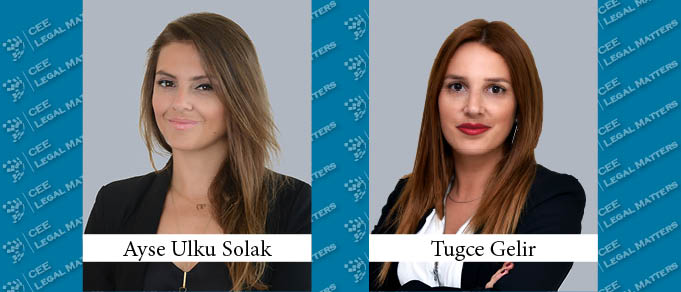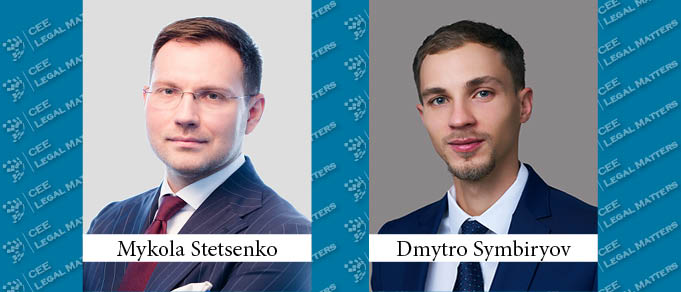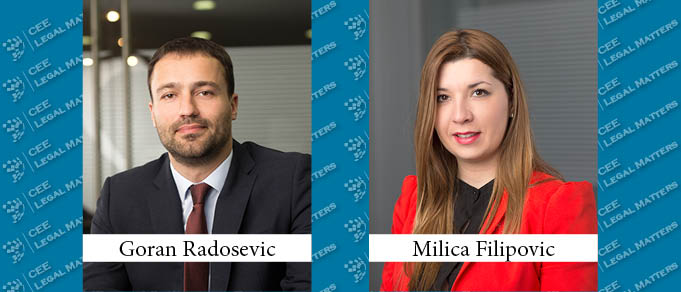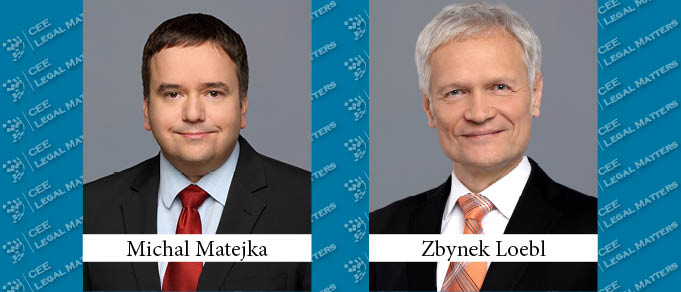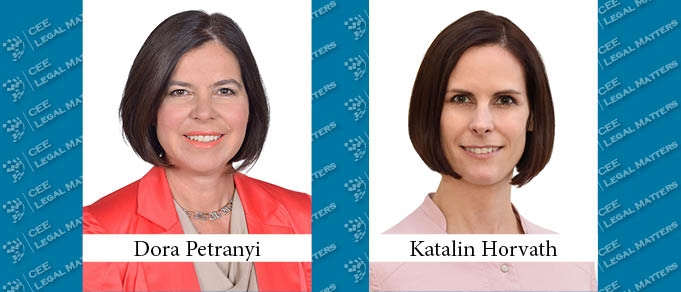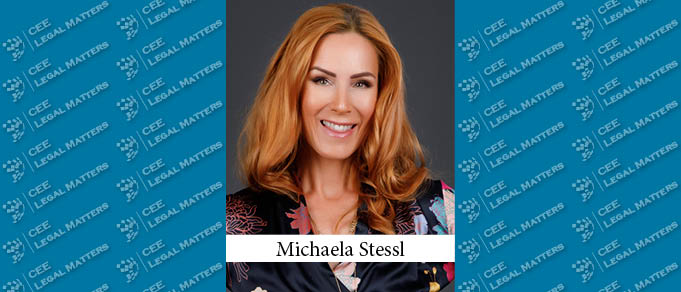The Romanian legal market got overheated in the past couple of years. The numbers went up and competition increased. The industry got more sophisticated and a variety of success stories unfolded.
Guest Editorial: Legal Business in CEE – How it Was, How it Is, and How it Will Be
When I was asked to write this editorial by CEE Legal Matters I started to wonder how I could describe the current situation in Central and Eastern Europe. The first half of the year will definitely remain marked by the global COVID-19 pandemic. However, this editorial will not be focused on the pandemic, on measures taken (or not taken) by the governments in the region, or on what the consequences will be. Instead, I will try to provide an overview of the market, specifically as it relates to our business in this part of the world – and how I expect it to develop in the years to come.
Inside Insight: Interview with Stefan Orosi, Head of Legal and Compliance at Prima Banka Slovensko
“The in-house advisory role enables a lawyer to go deeper into the mysteries of the banking business and experience the life of a transaction, not just observe it from a distance. I elected to pursue an in-house practice at the beginning of my career, and even though I was tempted to switch to private practice many times, I remain loyal to the in-house life.”
Turkey: Save the Date for IYS Registration – Extended Deadline and Recent Updates on Commercial Electronic Message
In Turkey, a local and centralized commercial electronic communication management system (IYS) for obtaining, exercising, and tracking opt-in/opt-out requests as well as complaints from recipients of electronic commercial communications was established under the supervision of the Ministry of Trade, the competent authority, in line with recent amendments to the Regulation on Commercial Communication and Commercial Electronic Messages. Also, a company has been incorporated solely for the establishment and management of IYS on behalf of the institution authorized by the Ministry (IYSCo).
Ukrainian Data Protection Considerations Related to COVID-19
The restrictions that have been implemented by most governments to tackle the COVID-19 pandemic have affected various sectors of the economy and changed the way most businesses operate.
On the Concept of “Data Processor” in Russian Personal Data Law
Although, unlike the GDPR, Russia’s Personal Data Law does not clearly distinguish the concepts of data controller and data processor, there is a draft amendment to Russia’s law which, if adopted, would introduce these concepts.
Croatia: Our Top 3 Picks of Data Protection News from Croatia
Looking back on the first five months of 2020, three data processing topics in Croatia deserve attention, if for nothing else than their historical value. Data Protection – particularly finalizing the EU’s e-Privacy Regulation – has been identified as among the priorities of the Croatian Presidency of the Council of the European Union. The Croatian Personal Data Protection Agency (AZOP) publicized its first administrative fine against a bank for denying its clients the right of access to their personal data. And, if you were hoping this article would skip the ubiquitous COVID-19, no such luck: data processing issues and guidance amid the pandemic is the winner of our mini chart.
Serbia: Walking the Fine Line – Processing Employees Data During COVID-19 Pandemic
Companies around the globe are having to make urgent decisions to keep their employees safe and ensure business continuity in the midst of the COVID-19 outbreak. In order to fulfil these goals, companies need to find the right balance between providing a safe working environment and respecting their employees’ privacy, which can prove to be quite difficult in practice.
Austria During COVID-19 – Use of Electronic Signatures
In Austria, like in many other countries, the current restrictions due to the COVID-19 situation are causing extensive and opaque changes in social life and related legal issues. Although home office has become well established, it is still associated with limited opportunities for personal interaction. The situation raises many legal questions, one of which is how people can pragmatically conclude or sign a legally effective contract.
Romania: Will the New AML 5 Legal Framework Restrict Transactions with Virtual Currency in Romania?
In a recent warning, the European Union Commission sent infringement letters to Romania and seven other countries alerting them that they had failed to notify the EC of any implementation measures related to the transposition of the 5th Anti-Money Laundering Directive (EU Directive 2018/843, or AML 5) into national law, and instructing them to proceed with the transposition, which was supposed to have happened by January 10th, 2020, immediately.
Czech Republic: Digital Transformation of Courts
During the current pandemic crisis, courts in countries around the world have had to suspend their regular operations and have focused only on the most urgent and time-sensitive matters. Yet the first few online courts have been able to maintain regular service. This has led to a massive increase in interest in and awareness of online dispute resolution (ODR) and online courts among judges, arbitrators, mediators, and lawyers in general. The pandemic has highlighted the ability of ODR to keep operating in crises that impact physical operations. Suddenly Zoom and even email are being considered ODR technology because they enable online court proceedings and distant mediations.
Poland: Switching to the “New Normal”
There is a question circulating on the Internet right now: Who led the digital transformation of your company? Possible answers are: a) CEO; b) CTO; c) COVID-19. Which answer is correct?
Hungary: (Over)Regulating Artificial Intelligence in the EU
In February, the EU Commission issued its new White Book on Artificial Intelligence – a European Approach to Excellence and Trust. The White Book is the prelude to a new EU regulatory framework for AI that aims to minimize the risks of AI and seize the opportunities it offers.
Changes to the Commercial Code in 2020
On October 22, 2019, the Slovak parliament adopted Act No. 390/2019 Coll. (the “Amendment”), which significantly amends the Slovak Commercial Code as well as some other acts. Most of the Amendment’s provisions will come into effect on October 1, 2020.
Inside Out: Rosum Office Complex Acquisition
On March 11, 2020, CEE Legal Matters reported that Kinstellar had advised Austria’s European City Estates – a group of companies owned by the Austrian Humer Private Foundation – on its acquisition of the 22,000-square-meter Rosum office complex in Bratislava from Penta Real Estate, which was advised by Skubla & Partneri.
A Progressive Profile: Slovak President Zuzana Caputova
In March of 2019, relative unknown Zuzana Caputova won the Slovakian Presidential election, becoming the first woman and – at 45 – the youngest person ever to hold that office. With a background as an environmental lawyer and human rights activist, Caputova is largely viewed in Slovakia as a unifier, taking strong and reasonable approaches to even apparently intractable problems. Her success has inspired a degree of hope for the future from her former peers and colleagues in Slovakia’s legal community.
Guest Editorial: M&A Market in Slovakia Following COVID-19
When I was asked some time age to write an editorial for CEE Legal Matters on the Slovak legal market I thought it would be a nice opportunity to review my last 20 years, approaching the end of another very successful financial year.
Advancing Avellum
In 2009, deep in the throes of the global financial crisis, Mykola Stetsenko, a partner at Baker & McKenzie in Kyiv, stepped away from that secure position to start his own law firm. His ambitious move paid off, and now, eleven years later, the firm he launched – Avellum – is among the most successful and highly regarded in Ukraine.




